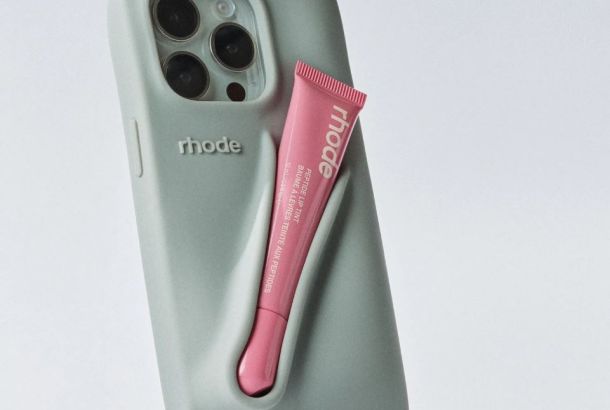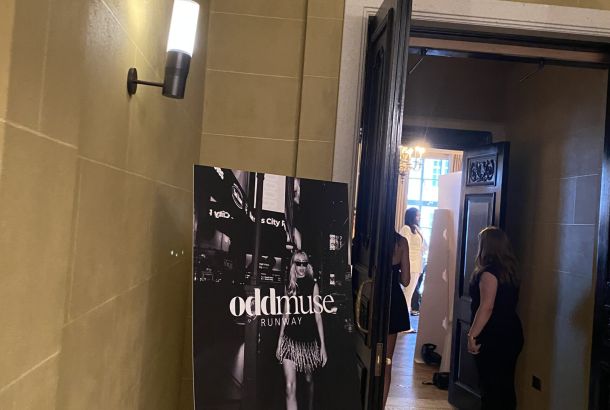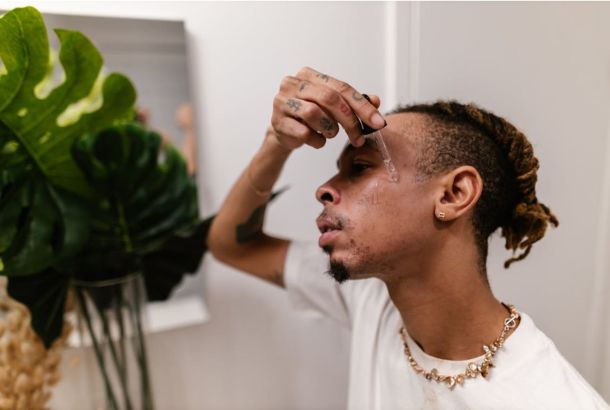In conversation with model Nandi Padambo
By Maia Penny
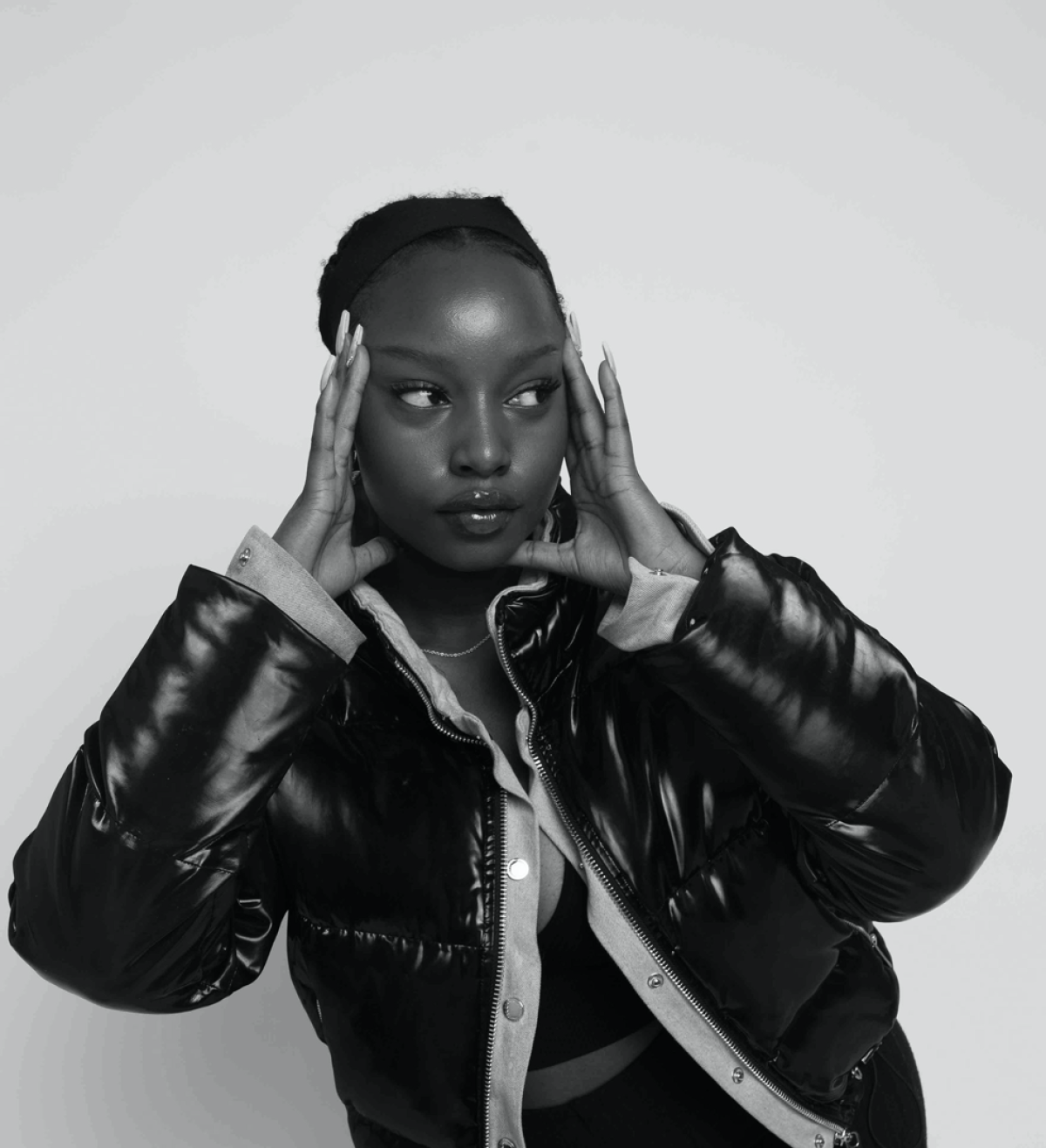
Written by Maia Penny and Letycja Oczkowicz
Nandi Padambo sits opposite us. Although she’s a fresh-faced second-year student at our very own University of Manchester, she has a wise look in her eyes. Is it her calm presence, the glow of her skin, or the fact that she has a blossoming model career that makes her seem so put together? Whatever it is, her magnetic allure is undeniable. It is very obvious why, at only 19, she has already been featured in Vogue Italia online.
As we make introductory conversation she laughs, flashing her gorgeous smile, and talks in her Yorkshire accent about life at University. Nandi studies Law. It’s going well so far, although she’s incredibly busy at the moment. Frequent trips to London for shoots, castings and meetings with her agency (BAME Models) are keeping her timetable jam-packed. We are grateful she has made time to sit down with us to discuss the intricacies of model life: the challenges, her favourite shoots and what it’s like being a person of colour in the industry. In an already notoriously brutal profession, is inclusivity lacking? Have things actually changed for the better, or is modelling still struggling to cater to everyone’s needs?

Did you wake up one day thinking ‘I could be a model’, or did you always have it in the back of your mind?
Not really, I thought ‘oh I’m short’. When you look in the media it’s a lot of skinny, tall models, but I realised I might as well try. I do have some insecurities. I’m still not at the place where I want to be: but some things are workable. If you just put your mind to it, you can get anywhere you want. I don’t have to do high fashion, I can do more commercial stuff.
If you could have one piece you’ve worn on a shoot, what would it be?
It would probably be one of the dresses that I did [on a shoot with the designer] Lydia Jackson. There was this purple one, it was beautiful, it was like a fairytale kind of dress. That’s one thing I’d wanna keep.
What modelling moment are you most proud of?
I think getting signed to the agency was probably my favourite? It was quite shocking, it was a big moment for me. I had to go all the way to London and meet the head of the agency, so it was kind of a step back moment.
Who is your favourite model?
Tyra Banks, I watched that show [America’s Next Top Model] religiously. She knows all the right angles. It’s more than just taking pictures, there’s so much to it. I look up to her a lot because she’s really found the formula for being a top model.
We saw a repost on your Instagram story about the problems POC face in the modelling industry with regards to hair. There was an interview with Monique Coleman where she mentioned that she had to wear headbands in High School Musical because none of the crew could style black hair. What are your thoughts on this? Is it still an issue today?
100%. At all the shoots that I’ve done, they’ve never sorted my hair out. It’s always me that has to do it. I’ve got a shoot coming up where there’s a stylist to do my hair. I am quite worried about it, I think most of the time they just don’t know what to do with black people’s hair. When they think of black hair, they immediately assume mixed-raced texture and they don’t know what to do with 4C type hair. They need to change that. I feel like you’re not really a hair stylist if you can’t do every single person’s hair.
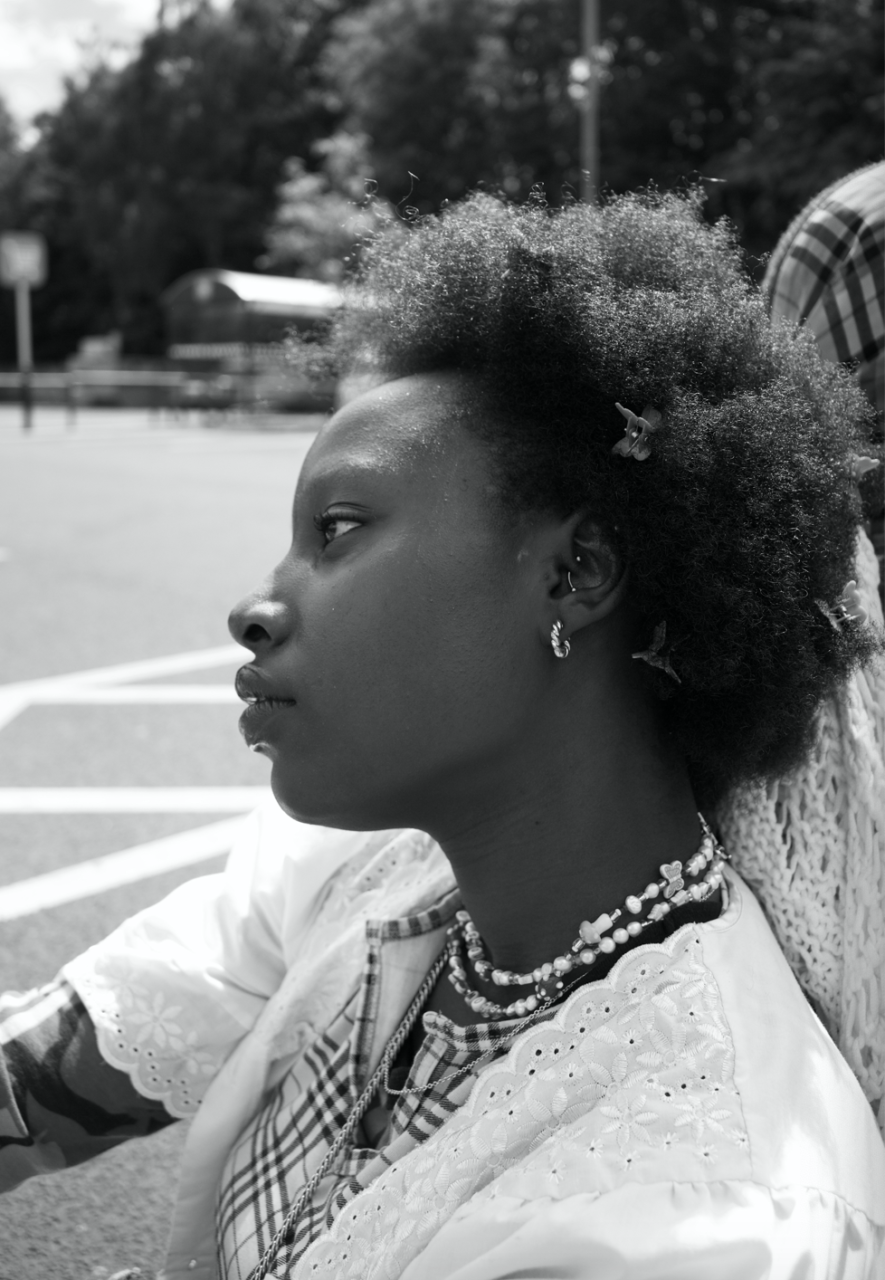
Leomi Anderson called out make-up artists on Twitter for not having the right products for her skin tone. Have you experienced this kind of discrimination?
So far I haven’t had any problems with makeup. The makeup artists have been really good at getting the right skin tone. I bring my own stuff just in case, but I haven’t had to use it so it’s actually been pretty positive so far.
There’s still unrealistic expectations when it comes to size, how has it affected you?
If we’re being honest, they don’t really want anyone above size 8. It is getting more inclusive, but I feel like it’s still hard if you’re not size 4 or size 6 to be on top.
This photographer was telling me that before lockdown [a model] was a size 6, but during lockdown she gained weight and her agency took her off their books. She was happy with her new weight, but the agency was like ‘no, we’re not having you anymore’. You can be dropped just like that. You can get a message saying ‘we don’t want you anymore’, and you have to deal with it.

You are an active member of the ACS and also their well-being and inclusion officer. When you were campaigning for the role, you were very vocal about the importance of mental health, why is this your primary concern?
I’ve had a lot of family trauma that has affected me in uni, but it’s not visible. I was really vocal about [mental health] because I feel like you just can’t tell what people are going through. It was important to me to get up there and talk about it.
Studies show that 40% of fashion models struggle with their mental health. Are you offered any kind of support in the industry, or is this a taboo topic?
I’d say it can be. With my agency I haven’t had any problems. I don’t think I would come to them, but I feel I wouldn’t have a bad reception. This model was saying that her agency caused her mental health to decline by forcing her to lose weight. She went on a lot of drugs, because it messed with her mental health. I think it’s more of an issue at some of the top agencies.
Some of the agencies have removed their weight and height requirements from the websites but you’re saying that the pressure is still there.
Some of it is just for show really. Maybe they’ll take out the sizing, maybe they’ll take out the height, but they still don’t want [anything outside the requirements]. People actually love to see inclusivity and diversity in modelling, the industry just needs to catch up.
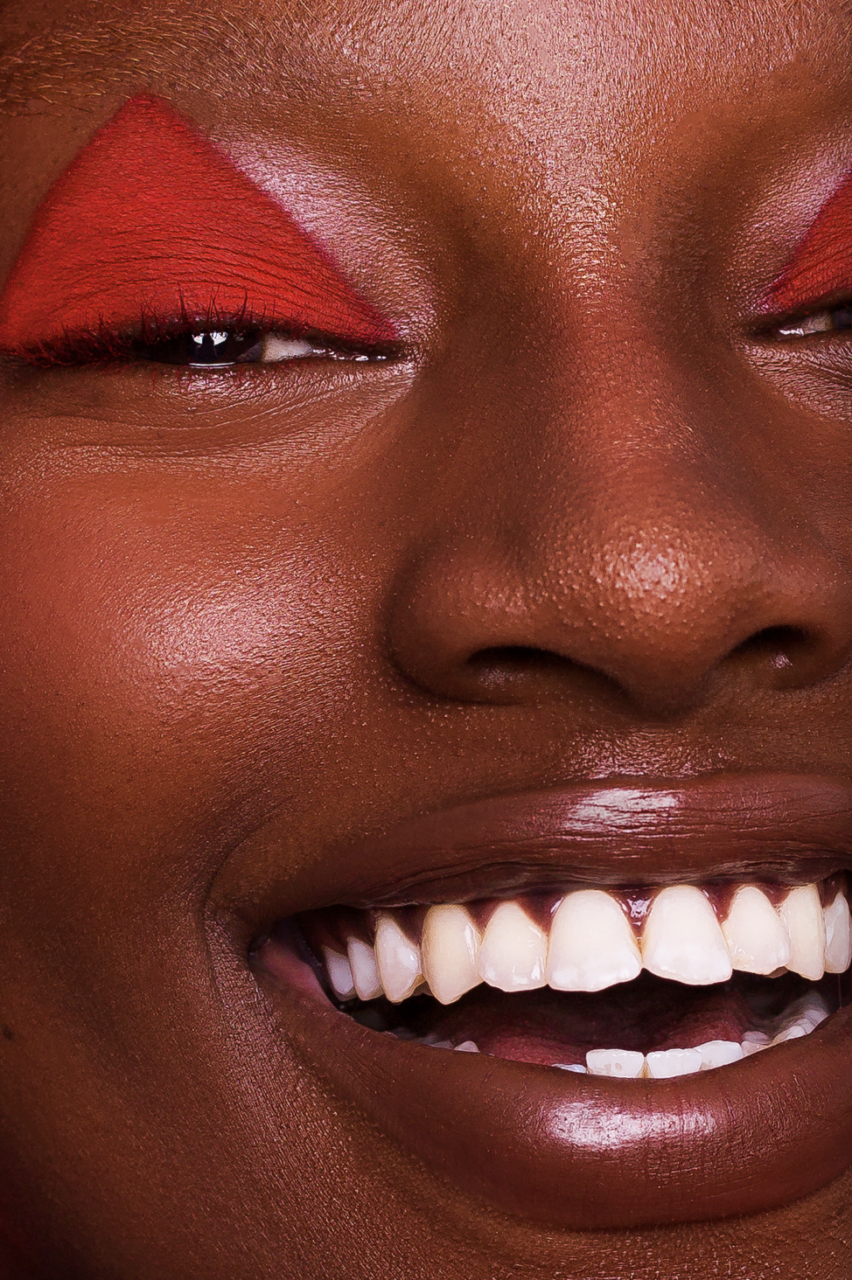
What does Black history month mean to you?
I feel like it’s very Americanised. I do relate to it, but it’s not my identity. It’s more like an American person’s identity. I don’t hear about black British, it’s just ‘America, America, America, African-Americans’. Although everything that happened in America affects me, because it’s my brothers and sisters, it’s my race, I feel like there needs to be more about British stuff. Apart from Stephen Lawrence, there is nothing really black British that you hear about. There are so many different things happening that we need to have a discussion about, or incorporate into this history month.
Any exciting things in the works? A little birdie told me that we might see you in a well-known pop star’s music video very soon…
Perhaps…[laughs]. I can’t really talk about it. There are going to be pictures coming out, but it takes like three months. The video is probably going to take a long time to produce, but the shoots might come out next month?
Making waves in the industry…Thank you so much for chatting with us!
